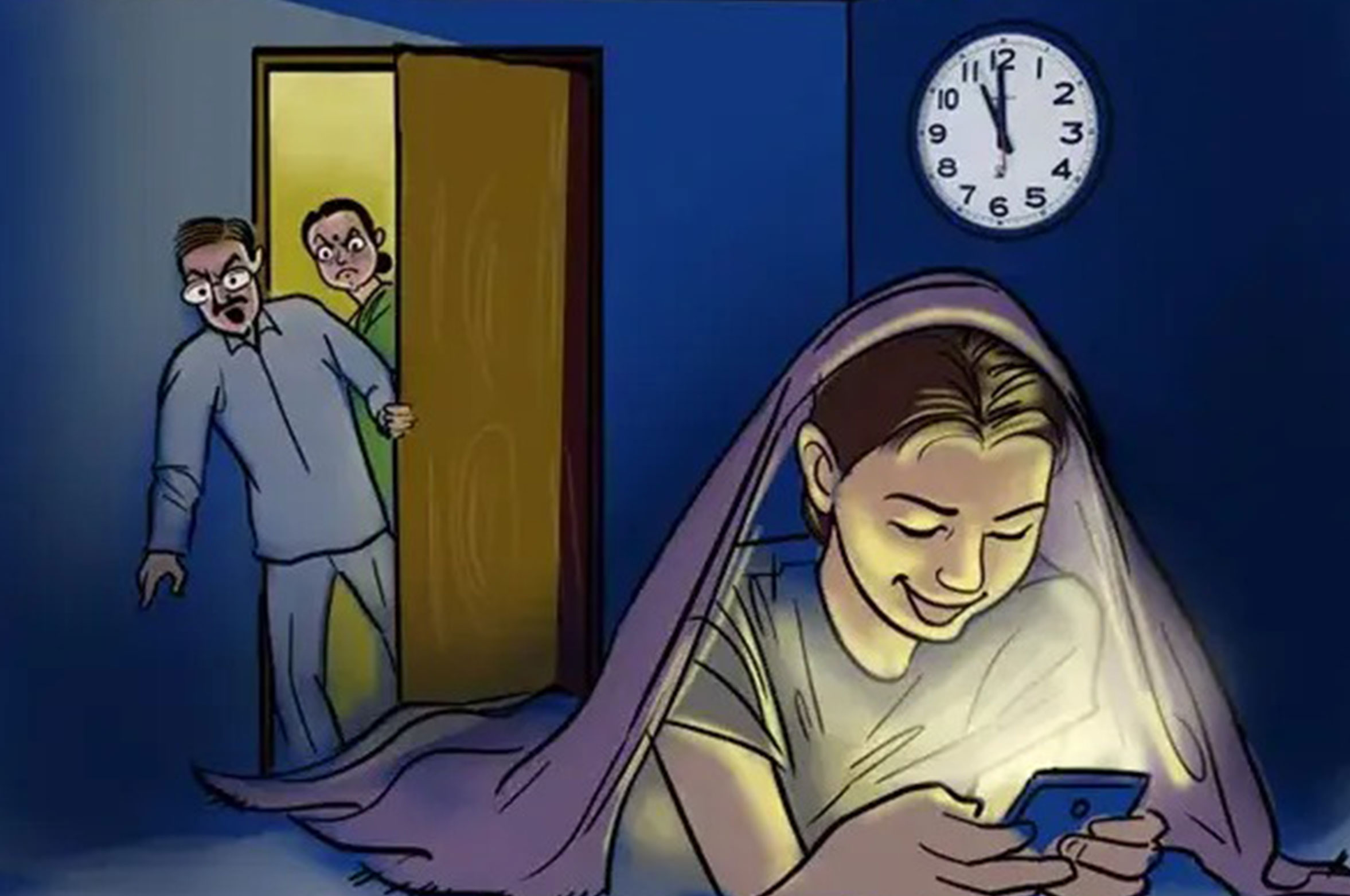In today's hyper-connected world, one device has silently crept into our pockets, homes, and minds—the mobile phone. What once was a tool for communication is now a portal for dopamine-driven distraction, addictive behaviors, and alarming health implications. From toddlers glued to cartoons to elders endlessly scrolling through social media, screen addiction is no longer a youth issue—it's a multi-generational crisis.
The Real Problem Isn't the Device—It's the Dependence
Smartphones are marvels of modern engineering. But their overuse triggers behavioral, neurological, and emotional patterns that closely mirror substance addiction. This phenomenon is especially concerning given how normalized it has become:
- Children throw tantrums when screens are removed.
- Teens experience anxiety, self-image distortion, and attention issues.
- Adults feel phantom vibrations, sleep less, and scroll through stress.
- Seniors increasingly lose real-world interaction, escaping into digital isolation.
So where is the problem? It lies not in the tool itself, but in how it's designed and how we've submitted to its design.
What Happens in the Brain: A Dopamine-Driven Cycle
Every like, ping, notification, or scroll triggers a small hit of dopamine, the pleasure neurotransmitter. Over time, the brain:
- Builds tolerance: requiring more usage for the same satisfaction.
- Associates boredom with screen need.
- Loses natural focus span: especially in growing children.
This rewiring of reward pathways is no different than sugar, gambling, or drug addiction—except this one hides in plain sight.
Destructive Behaviors on the Rise
Mobile overuse is now linked with:
- Sleep disorders (blue light blocks melatonin).
- Poor academic and work performance.
- Emotional dysregulation and aggression in children.
- Social comparison depression through social media.
- Texting while driving—a deadly distraction.
Addiction leads to avoidant coping strategies: escaping stress instead of managing it. When a child or adult seeks their phone in every emotional moment—boredom, anxiety, loneliness—they're outsourcing emotional resilience.
The Overlooked Concern: Radiation Exposure
Though less discussed, prolonged exposure to mobile radiation—especially near the brain, reproductive organs, or during sleep—raises valid concerns:
- Non-ionizing EMF (electromagnetic fields) may disrupt cellular metabolism.
- The World Health Organization classifies mobile radiation as "possibly carcinogenic".
- Continuous proximity may interfere with neural development in children.
While the science is still evolving, precaution is wiser than denial.
So, What Can We Do?
- Control the Environment, Not Just the Behavior
- Create tech-free zones (bedroom, dining table, prayer space).
- Limit passive screen use and encourage interactive learning.
- Introduce a "Digital Sunset": all screens off an hour before sleep.
- Model the Behavior
Parents must be the first to:
- Put the phone down during family time.
- Avoid "second-screening" while watching TV or talking.
- Show their kids: presence is more powerful than content.
- Rebuild Natural Rewards
- Encourage offline joys: nature, hobbies, music, art, prayer.
- Teach children to process boredom, not escape it.
- Reconnect as a family through shared stories, meals, and walks.
- Use Tech to Fight Tech
- Set app timers, use grayscale mode, or install digital wellbeing trackers.
- Turn off non-essential notifications.
- Use airplane mode during long phone-free stretches or while sleeping.
- Educate, Don't Just Punish
Children and even parents need to understand the why—why screens are powerful, how they manipulate, and what freedom feels like. Education brings awareness; awareness opens the door to change.
A Final Thought: From Screen Slavery to Screen Stewardship
The mobile phone is not going away. It's not about throwing it out—it's about reclaiming mastery over it.
Our families are not lost causes. But they need leadership, not lectures—and that begins with awareness and action.
If we can reshape our relationship with technology, we can raise a generation that's not just connected, but conscious. We can age into elders who aren't trapped in digital bubbles but engaged in meaningful reality.
Let's not wait until we regret what we've lost. Let's start living beyond the screen—together.









